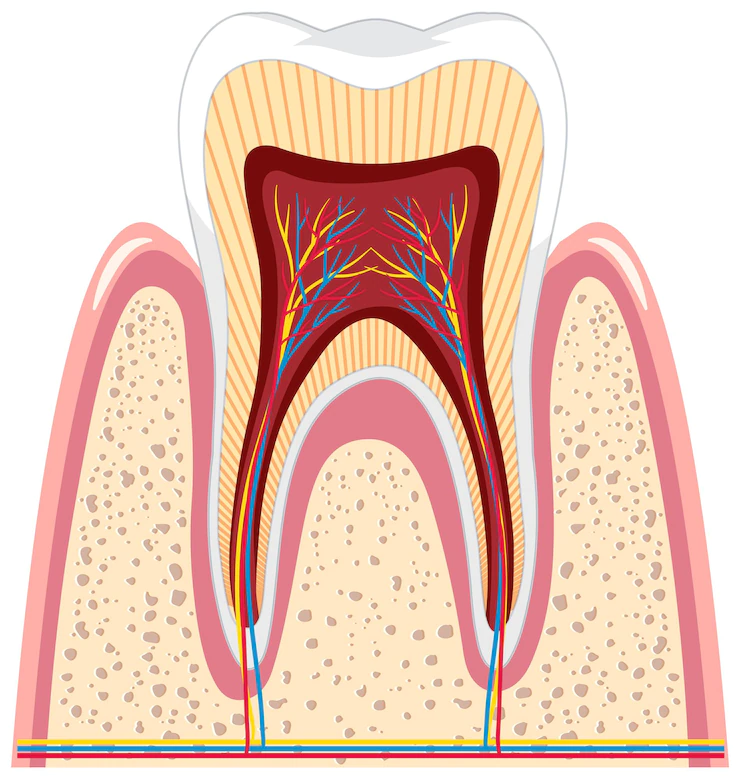
The inaccurate information about root canal therapy prevents patients from making an informed decision regarding their teeth. There are many patients that go as far as asking their dentist to extract a tooth, rather than save it with a root canal.
Before you believe the hype, take a look at the top root canal myths, and learn the truth for yourself.
Root canal Treatment is often considered as incredibly complex and painful procedure. There is a common misunderstanding in people that this treatment will cause lot of pain. but, in fact, it’s the opposite. Infection of nerve pulp can be incredibly painful—much more painful than a root canal. A root canal can relieve your pain and help you get your life back to normal.
If you don’t opt for root canal then you need to go for tooth extraction at some point of time eventually. And honestly root canals are quite inexpensive compared to the cost of replacing an extracted tooth with a dental bridge, implant, or false teeth.
It’s hard to miss this myth if you are searching for information on root canals online. Since the 1920s, a myth has existed that root canals are a major cause of cancer and other harmful diseases. Today, this myth circulates on the internet. However there is no valid scientific evidence supporting this theory. This myth itself is a public health hazard because it could prevent people from getting root canals they need. Not only are root canals safe and effective, they eliminate bacteria from the infected roots of teeth, improving both your oral and overall health.
Many people believe that once they have had root canal treatment, they will no longer feel pain in the treated tooth. This, however, is incorrect. The sensation of hot and cold typically goes away once you do root canal because the pulp is no longer in the tooth, but sometimes the root canaled tooth can be tender to chewing and it can still sometimes have positional pain. It’s most likely normal post-surgery pain, which takes time to go away. If this happens to you, your dentist can prescribe a medicine, so stay in touch with him/her.
An extraction is a traumatic procedure that actually allows more bad bacteria to be introduced into the bloodstream. There is no adequate replacement for a natural tooth. A root canal with a good restoration is not only cost effective, it allows you to keep your natural tooth, so that you can maintain a beautiful and healthy smile.
Root canal results are long-lasting. They relieve patients’ toothaches and preserve the affected tooth indefinitely. The final restoration or crown is the key to successful results. A well-fit crown combined with good oral health practices and routine visits to the dentist can ensure that your tooth lasts a lifetime.
Many teeth that need root canal therapy will not cause pain. But that does not mean the tooth is okay. Your endodontist have ways to see if the tooth’s pulp is damaged or infected. Sometimes teeth that have died no longer cause pain and need to have a root canal in order to avoid becoming infected. Without treatment, nearby tissues will also become infected.
Once you have received root canal therapy, you will need to make follow-up appointments to have a permanent filling or crown put on the tooth. The temporary filling that is placed after the pulp has been removed will protect the root from infection for only a short time. A permanent filling or crown must be placed to ensure that bacteria don’t leak into the canal. Stay in communication with your dentist to decide the right course of action.
Copyright © 2023 Dream Smile Dental, All rights reserved. Developed by Massivedynamics.
Let my team of specialised dentists take care of all your dental problems.